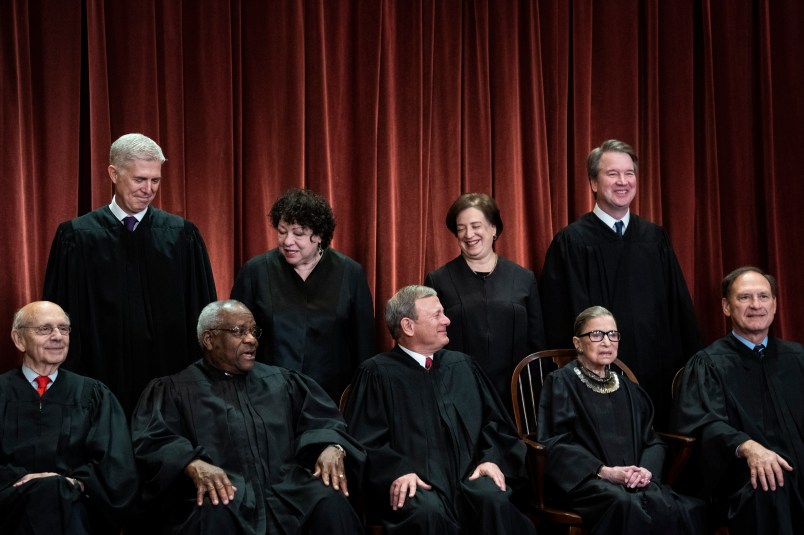The Supreme Court agreed on Friday to hear three separate cases in which President Trump is fighting to block investigations into his personal and business finances, including his tax returns.
The high court will hear arguments in the cases in March 2020. The cases could decide how aggressively – and if at all – a sitting President can be investigated.
Two of the cases stem from congressional subpoenas to Trump accounting firm Mazars USA LLP and to his longtime lender Deutsche Bank. The court will hear those cases together.
The third case emanates from an August 2019 subpoena issued by Manhattan District Attorney Cyrus Vance to Mazars as part of a criminal probe into the Trump Organization.
Personal attorneys for the President have argued in the Vance case that, while in office, Trump is immune from “criminal process,” meaning that he cannot be investigated for any act ranging from hush money payments to a porn star to shooting someone on Fifth Avenue.
In the congressional subpoena cases, Trump holds that the House also lacks a right to investigate a sitting President. None of the subpoenas are to Trump directly; rather, they go to third-party custodians of his financial records.
The cases are set to be decided in an election year where Democrats are likely to trumpet the nearly endless stream of personal corruption allegations against the President.
The conservative majority on the Supreme Court could use these cases to lock in an expansive definition of presidential power that would make the executive virtually unaccountable while in office.
Trump’s strategy since the probes began has been to delay the subpoenas’ enforcement by forcing the investigating authorities to undertake lengthy litigation.
The Supreme Court’s decision to docket arguments for the cases in March – seven months after a grand jury issued a criminal subpoena in the Vance case and nearly a year after Congress issued its subpoenas – suggests that the strategy has worked as intended.
And while the court will be considering weighty constitutional issues involving the separation of powers, the underlying cases involve the grubby details of the president’s liaisons with a porn star and whether he’s a chronic tax cheat. Specifically, the allegations range from Trump lying to banks in a bid to buy the Buffalo Bills to the National Enquirer buying the rights to stories of his alleged affairs to keep them under wraps.
The House Oversight, Intelligence, and Financial Services committees issued subpoenas in April as part of separate probes into the President’s financial history. Trump immediately took the unprecedented step of hiring personal attorneys to fight the investigations.
A grand jury issued a subpoena as part of Vance’s investigation into the Trump Org’s involvement in a hush money scheme to buy Stormy Daniels’s and Karen McDougal’s silence in the days before the 2016 election.
In the Vance case, a district judge and appeals court panel ruled against the President, ruling that Mazars must comply, and that the subpoena itself was proper.
D.C. and Manhattan federal courts – backed up by separate appellate court panels – also upheld the congressional subpoenas. Both Mazars and Deutsche Bank were ordered to comply until the Supreme Court stayed the orders.
With Trump likely to be acquitted in a Senate impeachment trial for tampering with the 2020 election and the conservative Supreme Court unlikely to reel in his vast presidential powers, Trump may emerge from the election unbound and unconstrained.






